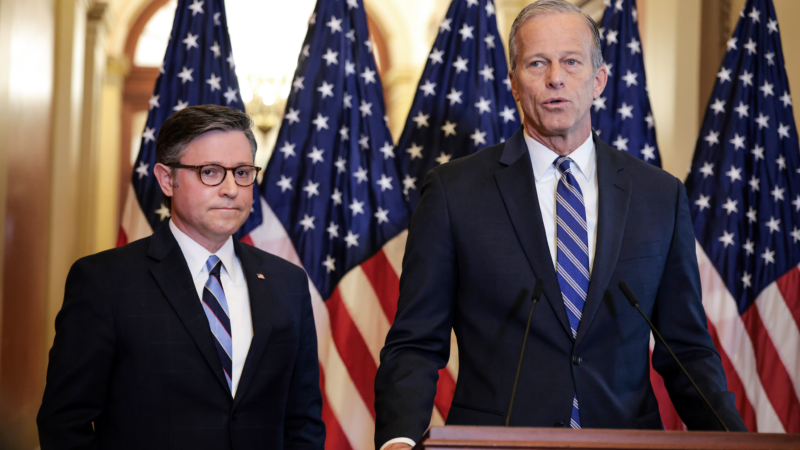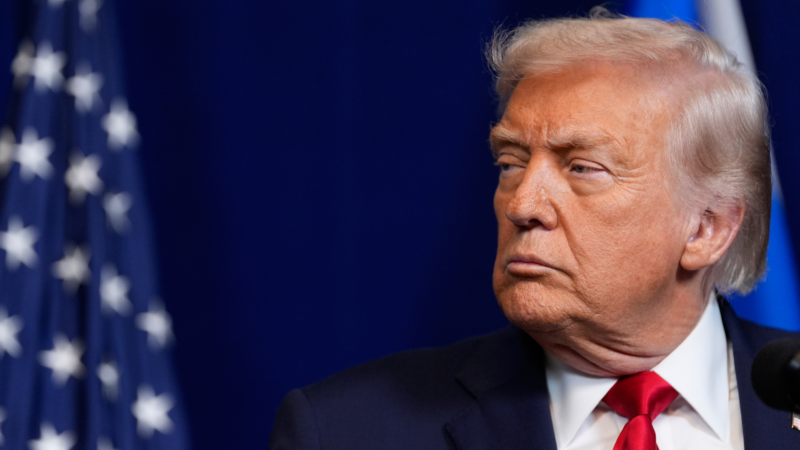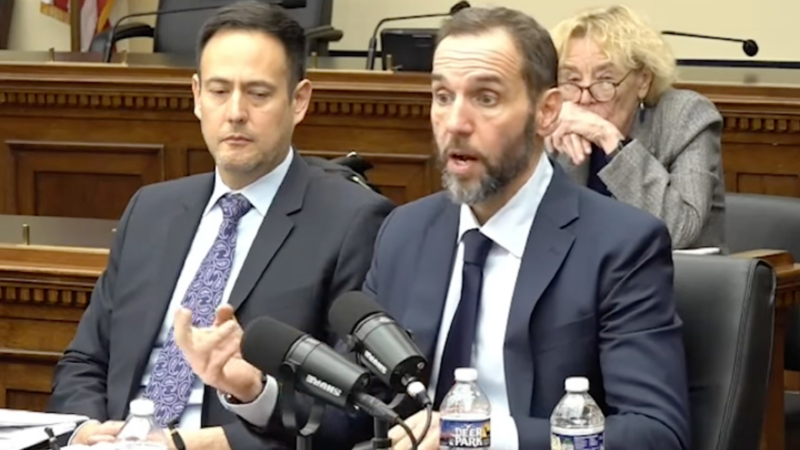House approves budget framework, kickstarting work on Trump’s domestic agenda
House Republicans have approved a multitrillion budget framework that allows the party to begin the process of drafting legislation to enact key elements of President Trump’s domestic policy agenda – including tax cuts and spending on defense, energy and immigration.
The budget blueprint was approved Thursday by a vote of 216 to 214.
GOP Reps. Thomas Massie of Kentucky and Victoria Spartz of Indiana joined all Democrats in voting no.
“I don’t believe they’re going to make any cuts of any consequence,” Massie said after the vote. “Now they may reduce spending here and increase spending there but overall, the money spent next year is going to be more than the money spent this year.”
The vote is a victory for Trump and Congressional Republican leaders who spent days convincing fiscal hawks within the Republican party to vote for the bill despite their frustration over the level of spending cuts included in the Senate version of the plan that was adopted on Saturday. The Senate framework outlines only about $4 billion in spending cuts. The House version seeks at least $1.5 trillion.
Now that Republicans have adopted identical versions of the framework in the House and Senate, they are able to unlock a special budget tool known as reconciliation – a complicated process that allows them to avoid a filibuster in Senate and pass a final version of the legislation with a 51-vote simple majority.
Both chambers will now get to work on drafting the final legislative product, likely a lengthy process requiring intense negotiations. House Speaker Mike Johnson, R-La., told reporters after the two week recess that begins next week, House committees will work “in a collaborative fashion” with Senate committees on next steps.
“We have bills drafted. Most of them have been scored already,” he said. “Now we go through the process of marking it up and finding the equilibrium points with everybody so that all those interests are met.”
Johnson has previously said he wants to get the final bill to Trump’s desk by Memorial Day.
Budget framework passes but intraparty drama is likely to persist
The final vote came after House GOP leaders delayed a scheduled vote Wednesday night because of dissent from conservative hardliners concerned that approving the Senate amendment would prevent them from achieving the level of spending cuts they want in the final bill.
Senate Majority Leader John Thune, R-S.D., and Speaker Johnson gave a brief press conference ahead of the House vote, emphasizing unity despite months of daylight between the chambers over the scope of spending cuts.
“Our two chambers are directly aligned also on a very important principle, and that is the principle of fiscal responsibility,” Johnson said. “We are committed to finding at least $1.5 trillion in savings for the American people while also preserving our essential programs.”
He added: “I’m very happy to have our our partners in the Senate working so closely with us as one team, one unified team, which is very important for us to deliver on all these objectives.”
Thune said they are aligned on making the 2017 tax cuts permanent and to secure significant spending cuts.
“We have got to do something to get the country on a more sustainable fiscal path,” he said. “The speaker’s talked about one and a half trillion dollars. We have a lot of United States senators who believe that as a minimum. And we’re certainly will do everything we can to be as aggressive as possible to see that we are serious about the matter, not only of making our federal government more fiscally sustainable, but also deficit reduction.”
South Carolina GOP Rep. Ralph Norman, who had been opposed to the GOP budget but voted for it Thursday, said the meeting with Senate GOP leaders Wednesday night got the House, Senate and White House all on the same page with a minimum of $1.5 trillion in spending cuts.
Many conservatives didn’t trust the Senate GOP would agree to that floor, but he said Senate Majority Leader John Thune told the group he wanted even higher than that number.
Norman said they would release a public outline giving the “buckets” of where the cuts would come from such as rolling back Biden’s energy program, cutting waste fraud and abuse. “When it totals up it’s going to be more than $1.5 trillion.”
New York Democratic Rep. Alexandria Ocasio-Cortez called the GOP budget a “heist in public – this is heist on Medicaid, a heist on Medicare recipients, a heist on public healthcare in order to continue to finance Elon Musk’s defense contracts.”
Zohran Mamdani sworn in as New York City mayor, capping historic rise
Mayor Zohran Mamdani took the oath of office in New York City after midnight Thursday. The city's first Muslim mayor, a member of the Democratic Socialists of America, has promised to focus on affordability and fairness.
Rising from the ashes, a symbol of hope at the Rose Parade
Survivors of the Eaton and Palisades Fires find healing and community working on a Rose Parade float to honor the lives and communities lost in last year's wildfires.
The history behind the NYC subway station chosen for Mamdani’s swearing-in
The city shut down the station in 1945 on New Year's Eve. Eighty years later, it's a symbolic venue choice for the incoming mayor's private swearing-in ceremony.
U.S. military strikes 5 more alleged drug boats, killing 8
The U.S. military says it struck five alleged drug-smuggling boats over two days. The attacks killed eight people, while others jumped overboard and may have survived. U.S. Southern Command did not reveal where the attacks occurred.
Capitol riot ‘does not happen’ without Trump, Jack Smith told Congress
Former special counsel Jack Smith also described President Trump as the "most culpable and most responsible person" in the criminal conspiracy to overturn the 2020 election results, according to a transcript of Smith's closed-door interview with the House Judiciary Committee.
Trump will drop push for National Guard deployments in Chicago, LA and Portland, Ore.
Courts blocked troops from deploying in Chicago and Portland, Ore., and the Los Angeles deployment effectively ended after a judge blocked it earlier this month.







